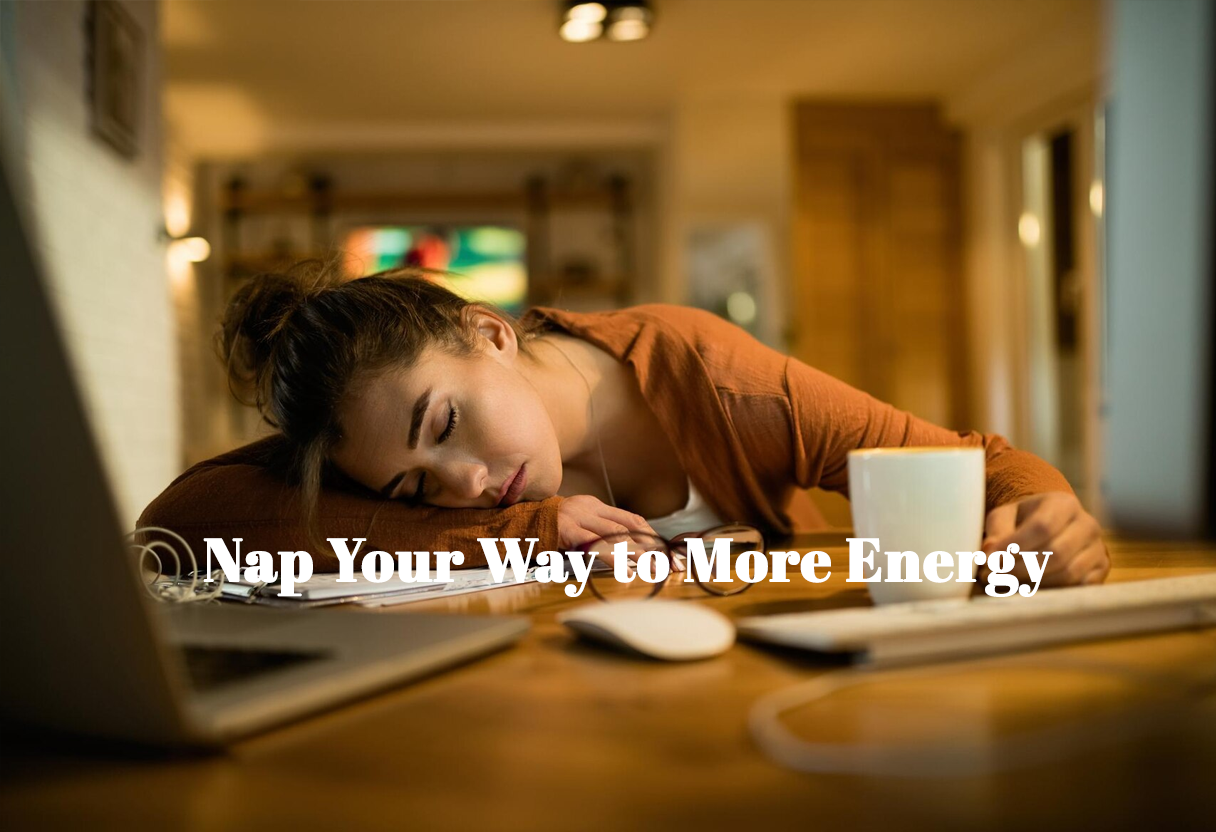Nap Your Way to More Energy

Napping has often been underestimated as a luxury or something meant for lazy days. However, research and experience reveal that naps can be an effective tool for improving energy levels, enhancing focus, and boosting overall productivity. In this blog, we'll explore the many benefits of incorporating naps into your daily routine and how to make them work for you.
Why Naps Are Essential
Modern lifestyles are often packed with responsibilities, stress, and long work hours, which can lead to fatigue and burnout. Napping offers a quick and natural way to recharge your brain and body without relying on coffee or energy drinks.
Contrary to popular belief, a well-timed nap doesn't disrupt your nighttime sleep but complements it by bridging the gap between energy lows that often hit midday. It ensures you're mentally and physically prepared to tackle your tasks.
How Naps Recharge You

- Improved Alertness: Did you know that a 20-minute nap can do wonders for your alertness? Napping helps reset your brain by reducing drowsiness and enhancing attentiveness.
- Enhanced Memory Retention: During a nap, your brain processes and consolidates information. Short naps can improve your ability to recall facts and details, making them an essential tool for learning and problem-solving.
- Reduced Stress Levels: Having a quick nap can lower stress hormones like cortisol, leaving you more relaxed and rejuvenated.
The Connection Between Naps and Productivity
Taking a nap might seem counterintuitive during a busy day, but in reality, it can improve the quality and efficiency of your work. Here's how:
- Boosts Creativity: Short naps provide your unconscious mind with the space to explore innovative ideas and solutions. This is why many creative professionals swear by them.
- Increases Stamina: If you're burning the candle at both ends, naps can help you recover faster and sustain energy levels for additional productivity.
- Sharper Decision-Making: Fatigue affects judgment and decision-making. A well-timed nap can clear brain fog and help you think more clearly.
How to Make Naps Work for You
To maximize the benefits of napping, timing and duration are crucial. Here are some tips to get it right:
- Keep It Short: Limit naps to 10–30 minutes to avoid sleep inertia, which can leave you feeling groggy instead of refreshed.
- Pick the Right Time: Nap during the early afternoon, usually post-lunch, when your body’s energy levels dip naturally.
- Create a Restful Environment: Lower the lights, eliminate noise, and ensure a comfortable place for resting.
- Set an Alarm: This ensures you don’t oversleep and wake up feeling disoriented.

The Science Behind Napping
The benefits of a nap are backed by science. Studies show that napping activates the parasympathetic nervous system, which is responsible for rest and digestion. This results in improved heart rate, blood pressure, and overall well-being.
NASA, for instance, conducted studies on the power of napping for astronauts. Short, strategic naps were found to increase alertness by 54% and overall performance by 34%, making a case for napping in high-performance environments.
When to Avoid Napping
While naps are generally beneficial, they're not always advisable. Here are some cases where you should rethink:
- If you have chronic insomnia or struggle with nighttime sleep, napping might make these issues worse.
- Avoid napping if it interferes with your evening routine or energy levels close to bedtime.
Conclusion
Napping is a powerful yet underutilized tool for boosting energy, improving focus, and enhancing productivity. Incorporating short naps into your routine can have a profound impact on your mental and physical health. Like any good habit, it’s worth experimenting with what works best for your schedule and needs. So, the next time you’re feeling fatigued, consider a quick nap and experience the benefits firsthand.
Join our community today and take the first step towards a healthier, more balanced you.
Note: This is for informational purposes only and should not replace professional medical advice. Always consult a healthcare professional before starting any new treatment or session.
Photo: @Freepik, @unsplash @microsoft designer

